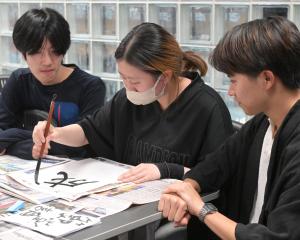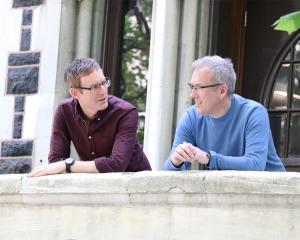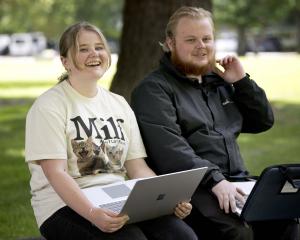
Now the University of Otago (Wellington) biomedical/health sciences and immunology associate professor has become the first Pasifika scientist to be awarded the Royal Society Te Apārangi Callaghan Medal for science communication.
The New Zealander of Tongan descent was "humbled" to receive the award at the Royal Society Te Apārangi Research Honours Aotearoa Ceremony, in Dunedin, last night.
It recognises her evidence-based science communication and her engagement efforts in New Zealand and the Pacific region.
Assoc Prof Sika-Paotonu said the award was an acknowledgement of the importance of science communication in its broadest sense — a vital part of her role as an academic scientist.
"[Science communication is] important in the public setting, the research setting, the teaching setting, and the community and cultural settings, such as the Pacific contexts across which I also operate."
The award is not her first for science communication.
She won the 2022 Prime Minister’s Science Communication Prize for being a leading voice during the Covid-19 pandemic, when she gave more than 220 broadcast media interviews and contributed to more than 1500 online and print media stories.
She has also been awarded the 2020 New Zealand Association of Scientists Cranwell Medal, a Fulbright scholarship to support her rheumatic fever research in 2020, she was part of the team that won last year’s Health Research Council of New Zealand Liley Medal, and she has received a Royal Order from the late King George Tupou V of Tonga in recognition of her scientific achievement.
Her research at Otago focuses on cancer, rheumatic fever and rheumatic heart disease, and infectious diseases, with a particular focus on addressing health inequities for disproportionately impacted communities.
"Significant health inequities exist for many different groups, including for Pacific and Māori communities in Aotearoa New Zealand and in the Pacific region, with many of these disparities having continued and persisted over time."
To help address these inequities in health and achieve better outcomes, it was important for researchers, health, scientific and medical workers to connect and engage constructively with everyone they encountered, including Māori and Pacific peoples and communities.
"All can benefit from communication and engagement efforts that are respectful, inclusive and based on two-way dialogue."
Also at last night’s ceremony, University of Otago PhD graduate Dr Ehsan Arabahmadi won the Royal Society’s Hatherton Award for the best PhD scientific paper in physical sciences, Earth sciences, or mathematical and information sciences.
His PhD was in computational physics, and studied the phenomenon of Anderson localisation, named for the pioneering work of Philip Anderson who was recognised with the 1977 Nobel Prize in Physics.
The Iran-born computer scientist works as an embedded systems engineer at Fisher & Paykel Appliances in Dunedin.











